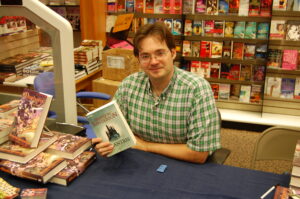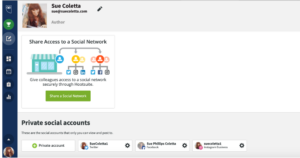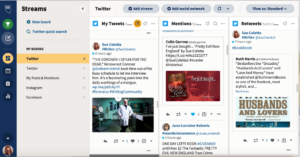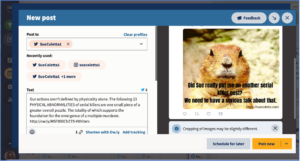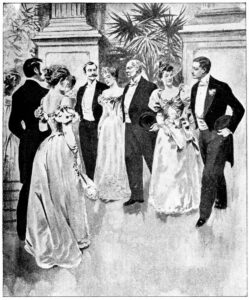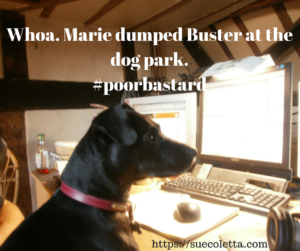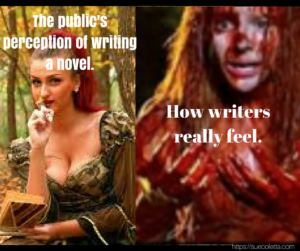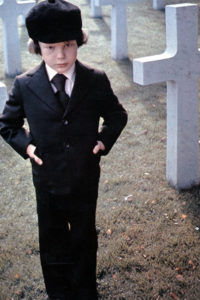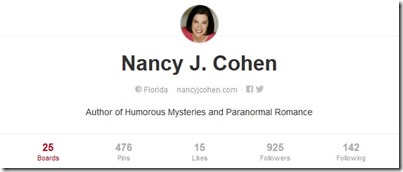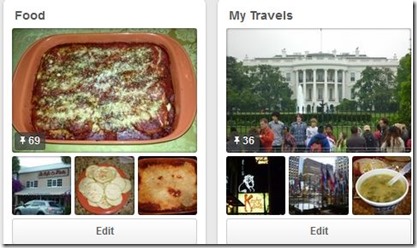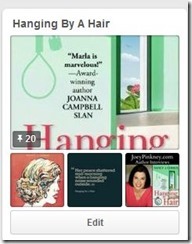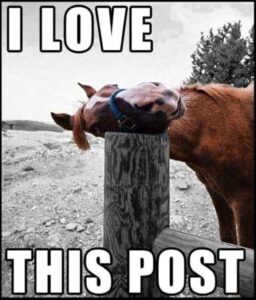 I’ve spent 12 years on social media. *cringe* In that time I like to think I’ve learned a thing or two. That’s not to say my social media presence is 100% perfect. Far from it. I am a flawed human. The trick is knowing where and how you went wrong, so you don’t repeat the mistake and destroy your social media platform.
I’ve spent 12 years on social media. *cringe* In that time I like to think I’ve learned a thing or two. That’s not to say my social media presence is 100% perfect. Far from it. I am a flawed human. The trick is knowing where and how you went wrong, so you don’t repeat the mistake and destroy your social media platform.
Whether we like it or not, social media is here to stay, and writers are expected to have an online presence. To help you navigate these turbulent waters, I’ve compiled the top 10 mistakes I’ve seen writers make over the years.
#1: Don’t talk at your audience. Chat with them.
Social media is about making connections, engaging in conversation. It is not a soapbox, nor are you the most important person in the room. People will have opinions that don’t align with yours. And that’s okay. Talk it out. Get to know them.
#2: Don’t try to be something you’re not.
I see this all the time. If you’re not passionate about a subject, don’t try to fake it because it’s trendy. This isn’t high school. Share something that excites you, and your passion will shine through. Folks want to know the real you, not some made up version.
Which brings me to…

#3: Chill out, dude.
You cannot hop on social media for five or ten minutes and expect to see instant results.
Building a community takes time. If you rush it, your “buy my book” activities will reek of desperation.
#4: Don’t copy a famous author’s social media style.
What works for a thriller or noir writer might not translate well to cozy, HEA romance, or sci-fi fans. If you write in a similar genre, you can emulate that author, but add your own special flair.
#5: Don’t spout orders.
We’re told to have a clear call to action in social media marketing, that’s true, but less is more. Don’t ask for multiple favors at once.
Buy the book.
Rate the book.
Review the book.
Repost the review on Goodreads, BookBub, Amazon, B&N, Kobo, Apple, etc. etc. etc.
Tell all your friends to buy the book.
Choose one. Once you build trust, move on from there.
Otherwise, it feels a lot like this:
Read everything I’ve ever written. Don’t think about time. I’m more important.
When you’re done with that, rate and review all my books, but don’t say anything negative. I will only accept four or five stars. Don’t forget to repost the review everywhere books are sold. And I mean everywhere.
Oh, btw, I need a few things at the grocery story. Grab a pen and write this down. You’ve got time, right? ’Course you do. After all, I’m the almighty author.
Clean my house.
Walk my dog.
Feed my wildlife.
Check in on my elderly parent.
Can you cook? Great. I’m far too busy writing my next masterpiece to waste time in the kitchen.
Come to me when you’re done, and I’ll give you the next task. You’re welcome.
#5: Don’t take before you give.
We’ve talked about the 80/20 rule before. I think 90/10 works better, but you’re safe with 80/20. For those who don’t know, it means 80% of what you share should be about life, pets, passion (not writing), or goofing around, 20% book news. Sounds easy enough, right? Yet some authors can’t seem to wrap their head around it. Every post is a version of “Buy my book!”
To the writers who struggle with the 80/20 rule, let me rephrase in simpler terms. I know you’re excited—we all do—but you are not the first person to write a novel, nor will you be the last. What if an Avon lady knocked at your door day after day after day to buy her products, would you be more or less likely to whip out your credit card? Don’t act like the Avon lady.
#6: Don’t be nasty, argumentative, or spread hate.
Self-explanatory. If you see something that angers you, keep scrolling. It’s simple. If you wouldn’t be nasty or spread hate in person, don’t do it online. If you would, please seek help.
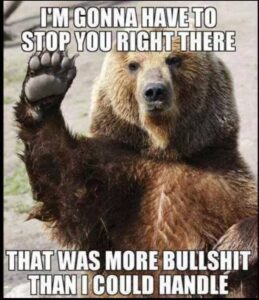
#7: Mind your manners.
Please and thank you go a long way in life and on social media.
#8: Don’t try to be everywhere.
Learned this lesson the hard way. Back when writers were expected to be everywhere, I built a following on Facebook, Twitter, LinkedIn, Pinterest, Instagram, StumbleUpon, Google+, Reddit, Triberr, Alignable, etc. etc. etc. Lost hundreds of thousands of followers when some of these sites went dark, too.
Learn from my mistakes. Focus your downtime (not writing time!) on one or two sites you enjoy. Social media should be fun.
#9: Use Social Media Management Tools
Shortly after I wrote a post about Hootsuite, they changed their plans. I switched to Buffer. For $15 per month, you can schedule up to 100 posts across several sites. Money well spent. It takes time to schedule posts in advance. Save it for the end of the day (don’t use writing time!).
#10: Know Your Audience
All sites are not created equal. What works on one site, won’t work on another.
For example:
On Twitter, my blog articles drive a lot of traffic back to my site. But Instagram doesn’t allow active links in a post, so those same articles crash & burn.
My FB audience loves to laugh. I share murder memes, dark humor, and my love of crows, animals, and wildlife. Some things can be reposted to Instagram, some can’t.
On Twitter, I can’t share my Facebook posts or they might trigger my audience to attack.
One time, I caused an uprising by sharing a group promotion for novels featuring strong female lead characters. The image showed silhouettes of women in dresses. I did not create the image. The girl who formed the group did.
Nonetheless, it triggered massive outrage. “Your tweet degrades women!”
Are you talking to me? I’m a woman and don’t feel degraded by a dress or skirt.
“Why can’t strong women wear pants?”
They can. I do.
“Delete that sexist tweet now!”
Sexist?
“Shame on you!”
You can’t argue with crazy. So, I created a new image for Twitter. It was either that or stop sharing the group promo. See what I’m sayin’? The original image on Instagram didn’t garner one negative response.
Bonus Tip
Automated private messages are never a good idea. Never. Pretend it doesn’t exist. In fact, you should never message a stranger. Are there exceptions? Yes, but it’s less intrusive to send an email. And please, for the love of God, don’t add followers to your newsletter list. It’s tacky and unprofessional.
Okie doke. Any tips to add, TKZers? Do you struggle with social media? Now’s the time to ask for help.

